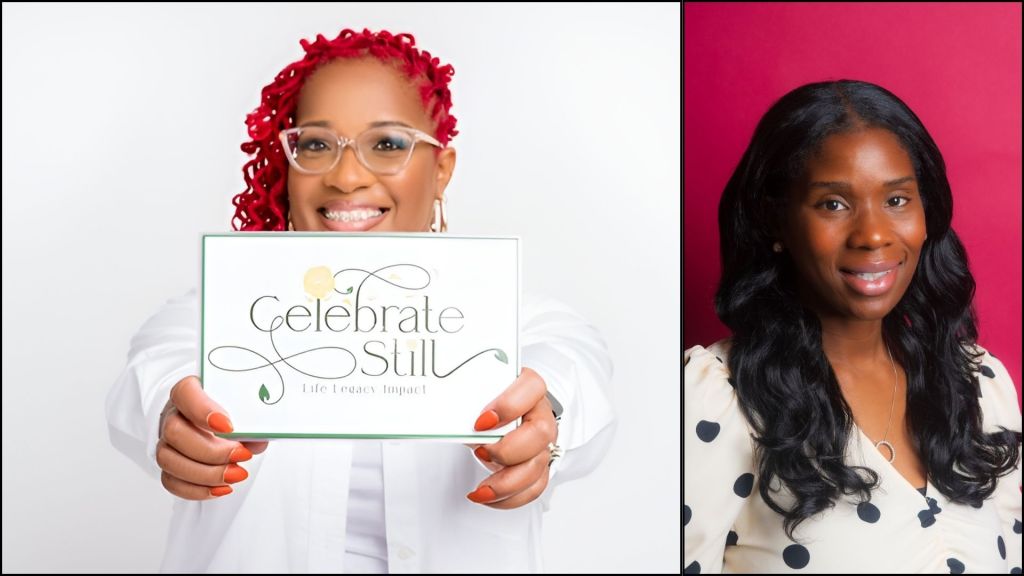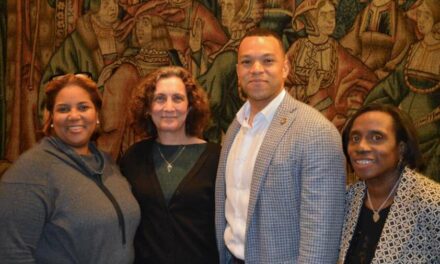By Aria Brent
AFRO Staff Writer
abrent@afro.com
According to the American Psychological Association (APA), “grief is the anguish experienced after significant loss, usually the death of a beloved person.”

Often accompanied with grief are “physiological distress, separation anxiety, confusion, yearning, obsessive dwelling on the past, and apprehension about the future,” reports to APA. In some cases, the “intense grief can become life-threatening through disruption of the immune system, self-neglect, and suicidal thoughts.”
A 2008 report by Omega, the Journal of Death and Dying, says that Black people are more likely to experience prolonged grief, all the while being less likely to seek treatment due to cultural stigma and a lack of access to care.
Kimberli Gross, founder and CEO of Celebrate Still Inc, a local nonprofit organization providing grief advocate support services, spoke with the AFRO about how grief is handled in the Black community and what resources are available to help people through their grief journey.
“In our community if you say you have a therapist or a counselor, it automatically means you are crazy, ” said Gross. “It’s not something we talk about. If there’s something happening in the house, it stays in the house. You don’t take your business outside in the streets and that contributes to mental illness. It contributes to depression and learning how to live in dysfunction.”
Gross founded Celebrate Still in 2021 with hopes of helping people find a new normal, build community and destigmatize the idea of going to therapy. The grief expert went on to discuss the different stages of grief and how permanent the feeling is.
“There are seven stages of grief ranging from denial to acceptance,” she said. “But those feelings fluctuate – they ebb and flow. One day you’re good and you’re peaceful and then you’re angry and resentful.”
Grief is a deeply personal journey that affects individuals in many ways, whether it be through the loss of a loved one, the end of a significant relationship, or other forms of personal loss. Organizations like Gross’ encourage open dialogue about these experiences and foster an environment where people can express their emotions without stigma or isolation.
According to Good Grief, a nonoprofit organizations addressing grief, “Black families have over three times higher odds of experiencing the death of two or more family members by age 30. Black families are about 90 percent more likely than Whites to have experienced four or more deaths by age 60.”
Terri McKoy spoke with the AFRO on how grief is often handled from an emotional standpoint in the Black community, leaving the mental aspect of the longstanding feeling neglected.
“We examine grief from an emotional state more than the mental state,” said the grief counselor. “When we check on individuals who we know have experienced a loss or are grieving, we say ‘How are you feeling? ’ or ‘How are you doing today ?’ But once we go through the ceremonial traditions, everyone thinks time heals the grief in our culture and we just move on.”
Noting that someone’s mood is often perceived as their overall well being, McKoy explained how important it is that the Black community has an understanding of how to differentiate the two and how someone’s mental health is impacted by grief.
“We can better support each other by understanding the impact of grief on individuals. Yes, there is an emotional aspect to it, but becoming more educated on the fact that grief is inevitable and the finality of it can help,” McKoy said. “Understanding that there’s a medical aspect to grief. An individual’s brain can change depending on how they’re impacted by grief.”
Gross expressed similar sentiments, noting education to be a great tool when it comes to being more sound and aware of the effects of grief. The experienced grief coach also discussed how learning these new habits can be hard for those who were raised during or by a generation of people that typically didn’t deal with their mental health in a healthy manner–if at all.
“Older generations usually choose to deal with things on their own and suffer in silence. There are generations that were raised by adults that don’t believe in therapists,” she said. “Now, we’re kind of waking up and educating ourselves and those conversations are different. My generation is discovering so many things about ourselves all at one time and trying to unpack and figure out what part is trauma, learned behavior, stigma or if this is really who I am.”
McKoy noted that the main thing to keep in mind while dealing with grief is that it’s extremely personal. Your journey with it has to fit you as an individual.
“Grief is personal and I don’t want people to have a general idea of how someone should grieve or how they manage their grief. It’s unique to each of us.”
The post Handling grief in the Black community appeared first on AFRO American Newspapers.










